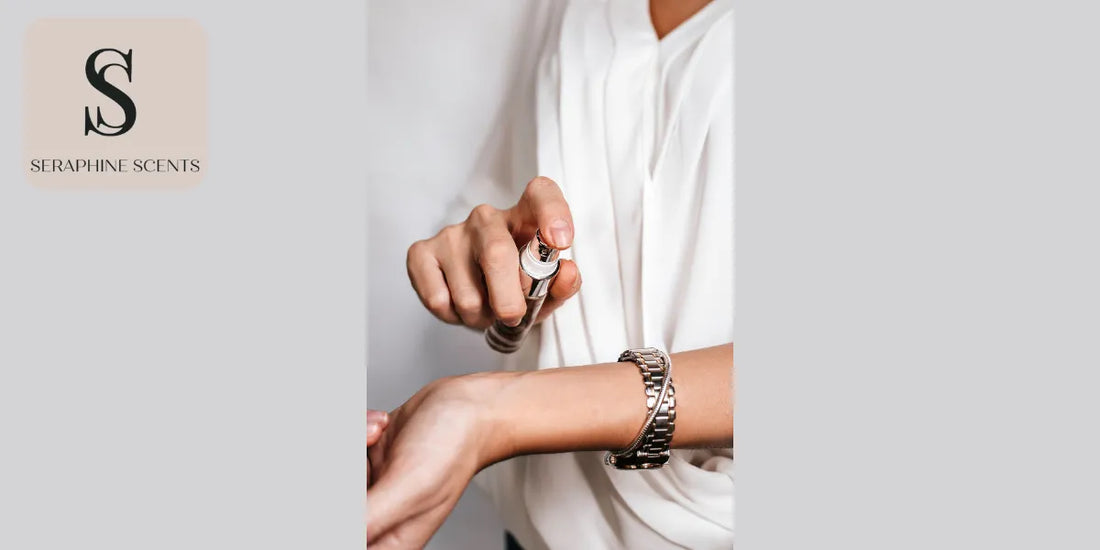
Why Perfume Smells Different on You — The Science Behind Skin Chemistry
If you’ve ever tried a perfume on your skin after loving how it smelled on a friend — only to be disappointed — you’ve experienced the fascinating effect of skin chemistry. Your body’s unique biology can transform the way a fragrance smells, sometimes subtly, sometimes dramatically.
This isn’t just personal perception. It’s chemistry in action. From the natural oils in your skin to your diet and even the weather, multiple factors influence how perfume develops and lingers on you. In this guide, we’ll explore the science behind skin chemistry, the reasons perfumes smell different on different people, and tips for finding scents that work in harmony with your body.
What Is Skin Chemistry?
Skin chemistry refers to the unique combination of your skin’s natural oils, pH level, moisture content, and surface bacteria. When you apply perfume, its molecules interact with your skin’s chemistry, altering how the scent’s top, heart, and base notes are released over time.
Factors That Affect How Perfume Smells on You
1. Skin Type
Your skin’s oil content can significantly influence perfume longevity and projection.
- Oily skin: Holds onto fragrance molecules longer, often boosting longevity.
- Dry skin: Scents may fade faster as they absorb into the skin.
Tip: Moisturising before application helps retain scent longer, especially in dry skin.
2. Skin pH Level
Most skin is slightly acidic, but the exact pH varies between individuals. This can subtly shift how certain fragrance notes are perceived.
- Lower (more acidic) pH: May make scents smell sharper or more citrus-forward.
- Higher (less acidic) pH: Can soften and mellow fragrances.
3. Body Temperature
Perfume is activated by heat, which is why we apply it to pulse points. People with warmer skin temperatures may notice their scents project more but burn through top notes faster. Cooler skin can make fragrances develop more slowly.
4. Diet & Lifestyle
What you eat and your lifestyle choices can influence skin chemistry.
- Spicy foods may amplify warm notes like amber or cinnamon.
- High sugar intake can subtly alter sweet or gourmand scents.
- Smoking can mute brightness in citrus and floral notes.
- Hydration keeps skin healthy, improving scent longevity.
5. Hormonal Changes
Shifts in hormones — due to stress, medication, or natural cycles — can temporarily alter skin chemistry, changing how perfume smells on you.
6. Climate & Environment
In Singapore’s humid climate, heat can intensify scent projection while also speeding up evaporation. This means perfumes might feel stronger initially but fade faster, especially light citrus scents.
Why the Same Perfume Smells Different on Different People
Perfumes are composed of volatile molecules that respond differently to various skin chemistries. The same fragrance can develop with more sweetness on one person, more woodiness on another, and even more floral tones on someone else — all due to subtle biological differences.
Testing Perfumes for Your Skin Chemistry
- Always test on skin, not paper blotters.
- Wear the perfume for several hours to experience the full dry-down.
- Test in both air-conditioned and outdoor settings to see how it behaves in different environments.
Tips for Finding Perfumes That Work for You
- Choose scents with base notes you naturally enjoy — these last longest and define the perfume’s character.
- Opt for slightly stronger concentrations (like Eau de Parfum) in humid climates.
- Layer with matching body products for better performance.
- Sample before buying full bottles, especially for complex or niche fragrances.
Perfume Families and How They React on Skin
- Citrus & Fresh: Bright but fade quickly on dry skin — best layered with moisturiser.
- Floral: Can become sweeter or sharper depending on skin pH.
- Woody & Oriental: Usually stable and long-lasting on most skin types.
- Gourmand: Tend to cling well to warm skin tones, enhancing sweetness.
Making Perfume Last Longer in Singapore’s Climate
- Apply after a shower on moisturised skin.
- Spray on clothes (if safe for fabric) to help scent linger.
- Carry a travel-size decant for discreet touch-ups during the day.
- Store perfume away from direct sunlight and humidity.
Why Shop with Seraphine Scents
At Seraphine Scents, we understand fragrance is deeply personal. That’s why we offer a wide range of 100% authentic designer perfumes for every skin chemistry. Explore our full collection, find luxury finds under $50, or check our best sellers to discover your perfect match.
Final Thoughts
Your skin chemistry is like a hidden ingredient in every perfume you wear. By understanding how your body interacts with fragrance — and testing scents in real-life conditions — you can find perfumes that enhance your natural appeal, smell amazing all day, and truly feel like “you.”

